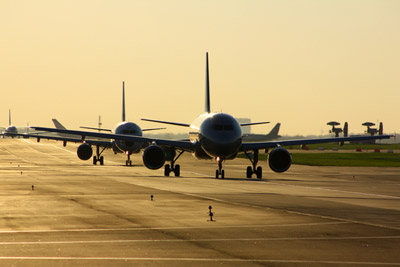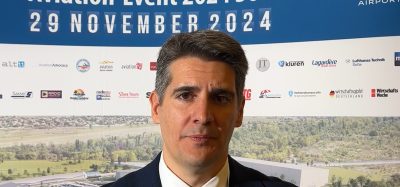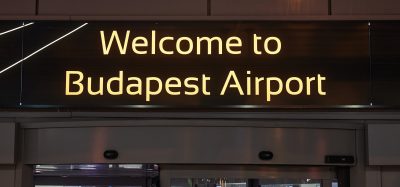CMA report outlines benefits of BAA break-up
- Like
- Digg
- Del
- Tumblr
- VKontakte
- Buffer
- Love This
- Odnoklassniki
- Meneame
- Blogger
- Amazon
- Yahoo Mail
- Gmail
- AOL
- Newsvine
- HackerNews
- Evernote
- MySpace
- Mail.ru
- Viadeo
- Line
- Comments
- Yummly
- SMS
- Viber
- Telegram
- Subscribe
- Skype
- Facebook Messenger
- Kakao
- LiveJournal
- Yammer
- Edgar
- Fintel
- Mix
- Instapaper
- Copy Link
Posted: 16 May 2016 | Katie Sadler, Digital Content Producer, International Airport Review | No comments yet
A report published by the Competition and Markets Authority (CMA) has detailed benefits that have arisen since the breakup of BAA following an assessment of the 2009 decision requiring BAA to sell off 3 of its airports.


A report published by the Competition and Markets Authority (CMA) has detailed benefits that have arisen since the breakup of BAA following an assessment of the 2009 decision requiring BAA to sell off 3 of its airports.


In a report published today, the CMA has outlined the benefits that have arisen since its predecessor, the Competition Commission (CC), ruled that BAA should sell 3 of its airports to increase competition for the benefit of airlines and passengers. In 2009 BAA sold Gatwick followed by Edinburgh in 2012 and then Stansted in 2013.
CMA report records how airports have responded under new and separate management
Today’s published analysis shows how the airports have responded to being under new and separate management.
According to the CMA, all 3 airports have grown passenger numbers following divestments over and above levels observed at comparable airports. This increase in passenger throughput resulted in up to 34 million additional passenger journeys from 2009 to 2015 – an average increase of around 10 percent. Both Gatwick and Stansted have increased their share of passengers travelling to and from London’s airports since divestment and Edinburgh’s share in lowland Scotland is also increasing. The report also details how, under their new owners, the airports have also sought to attract airlines and passengers outside their traditional target market.
Independent estimates in the report indicate that the quantifiable benefits associated with the remedies, relating to the benefits from increased passenger numbers such as improved connectivity and choice and downward pressure on fares, would total around £870 million by 2020.
Addition benefits from the report include:
- improved service quality and efficiency
- increased investment in facilities
- development of positive long-term relationships with airlines over issues like airport charges
- route development
- innovations to maximise limited runway capacity
The CMA report also highlights that limited capacity restricts the ability for airlines to expand and to be able to switch to another airport more credibly. If they could do so, competition between airports would intensify – leading to lower air fares and further efforts to increase service quality and make other improvements, emphasised the CMA.
The report recalls that, although it foresaw the immediate advantages from greater competition between airports, when the CC made its decision it was also clear the full benefits could only be realised by an increase in runway capacity. Today’s report again makes the point that limited capacity restricts the ability for airlines to expand and to be able to threaten to switch to another airport more credibly. If they could do so, competition between airports would intensify – leading to lower air fares and further efforts to increase service quality and make other improvements.
“Our assessment has confirmed that with the freedom to make independent commercial decisions to attract passengers and airlines, the airports now under separate ownership have taken a very different approach from their predecessors”
Commenting on the report, Alex Chisholm, CMA Chief Executive said: Our assessment has confirmed that with the freedom to make independent commercial decisions to attract passengers and airlines, the airports now under separate ownership have taken a very different approach from their predecessors. It shows just what a competitive environment and the need to be responsive to customer needs can deliver.
“We have been told by those we spoke to that many of these changes would not have happened under monopoly ownership.
“We have been able to estimate the sizeable economic benefit from the increase in passengers but the other improvements – whilst less easily quantifiable – are arguably even more tangible for the passenger. Certainly an increased focus on service quality is something that passengers can value more than anything else.”
“This is a very significant intervention in the airport expansion debate”
Reacting to the CMA report, Stewart Wingate, Gatwick CEO, said: “This is a very significant intervention in the airport expansion debate. It is a reminder that the choice facing Britain is either to expand Gatwick and build on the success of competition, or turn the clock back and recreate the monopoly at Heathrow. If we want Britain to grow the answer is obvious.”

















